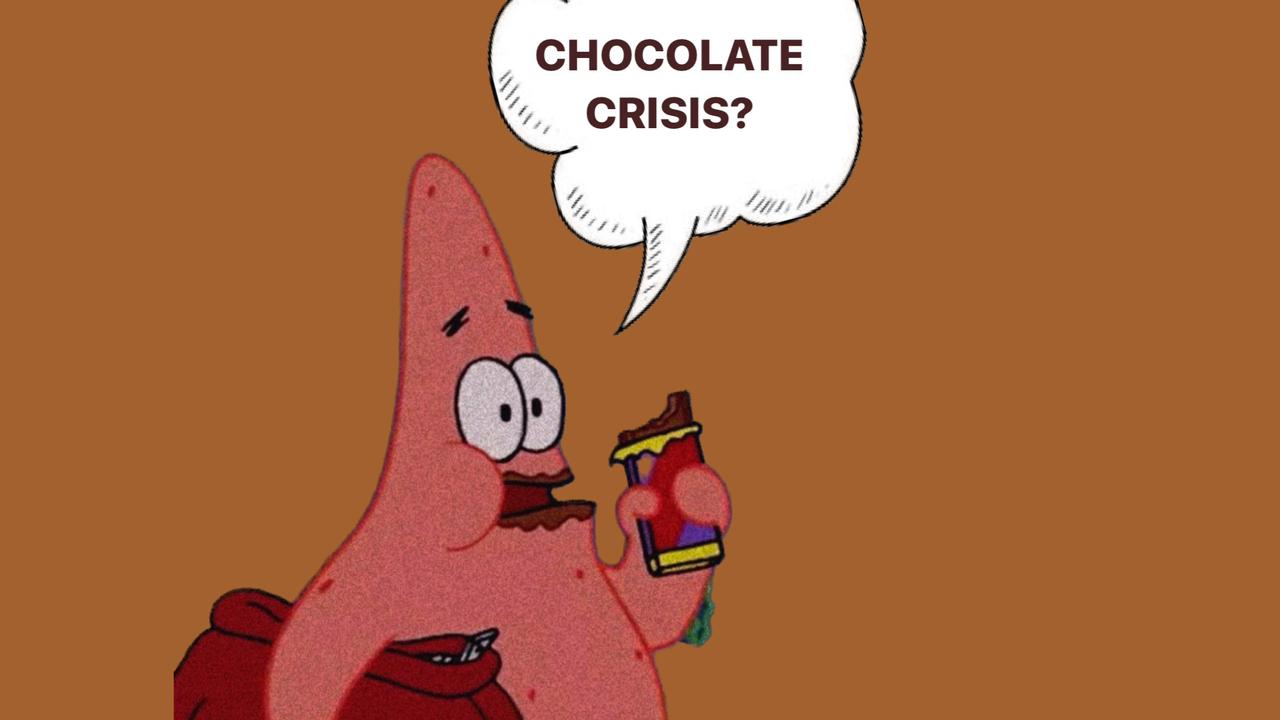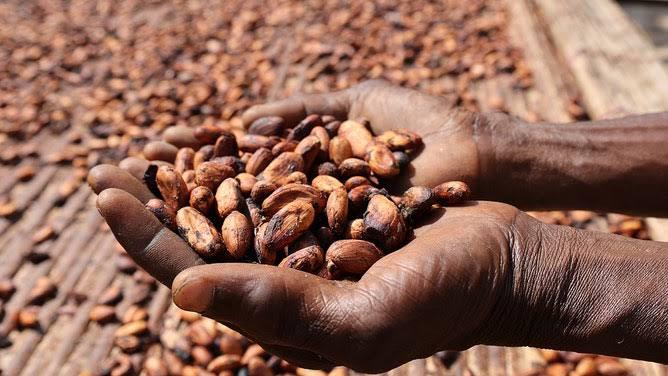We have ended up in the ‘Chocolate Crisis’! Yes, Chocolate is endangered now. Expect some price hike in chocolates this easter weekend.
What’s the reason? There is a significant increase in cocoa prices due to the decreasing supply brought on by climate change. Companies' input costs are rising as a result of the spike in cocoa prices, which is being attributed to a global shortage of supply. As a result, some of this increase may be passed on to customers.
According to recent data, the price of cocoa has surpassed the previous record set in 1977 and more than doubled over the past year globally. The price has increased globally by more than 75% in just two months, rising from $4,094 per metric ton on January 8 to $7,170 on March 6.
The International Cocoa Organization (ICCO) projects that this season's global cocoa production will decline by 10.9%, with an expected output of 4.45 million.

So, how did we end up in this situation?
It is the scarcity of cocoa beans in Ghana and Côte d'Ivoire. Although cocoa trees are indigenous to the Amazon rainforest, they have been cultivated in equatorial regions, including West Africa, Southeast Asia, and Central America, for their beans as they require warm temperatures and high humidity.
West African nations like Ghana, Nigeria, Cameroon, and the Ivory Coast are home to the majority of the world's cocoa bean farms. Four nations produce 70% of the world's cocoa beans; the two leading producers, Ghana and the Ivory Coast, account for 60 % of production worldwide.
Due to a scarcity of beans, African cocoa plants in Ghana and the Ivory Coast have either reduced or halted processing. According to the report, this year's cocoa harvests are below average for the third time. An estimated 8% reduction has been observed in cocoa supply is expected for the 2023-24 season. Also, Ivory Coast cocoa shipments between October and February were 32% less than the same period last year.

What are the main reasons?
Climate change
Farmers who grow cocoa trees in West Africa are currently facing harsh winds and dry weather due to El Niño this year. Cocoa trees grow only in a small equatorial band of about 20 degrees, making them extremely vulnerable to climate change. The El Niño weather phenomenon is contributing to farm problems such as the swollen shoot virus disease. Consequently, Ghana has suffered losses from nearly 500,000 hectares of land in recent years.
West African weather patterns are being disrupted by climate change; excessive rainfall occurred last year, threatening the health and productivity of cocoa trees. Heavy rainfall from the previous crop season has caused cocoa trees to contract diseases.
Cropping Methods and Diseases
Many farms exclusively cultivate cocoa trees, known as monocropping.Farms in the region have become more vulnerable to fungal black pod disease and other destructive crop diseases due to monocropping practices.
There is a need to transition from monocropping to agroforestry. Embracing agroforestry involves planting cocoa trees alongside other trees or crops, enhancing soil fertility and mitigating disease risks.
Economic Cycle
The natural cycles of growth and decline that are inherent in cocoa farming are included in the economic cycle of cocoa production. Cocoa trees require more maintenance as they get older because they are more susceptible to disease. In the past, farmers have frequently left behind aging farms in favour of new locations in newly planted forests. But it's getting harder and harder to find new forests. The lack of adequate compensation for sustainable cocoa production is arguably the most urgent problem.
Cocoa Affordability
Because raw cocoa beans cannot be used to make chocolate, chocolate makers usually rely on processors to turn cocoa beans into butter and liquor, two necessary ingredients. Due to their reliance on farmers' raw cocoa, processors struggle with high beam prices, which causes them to stop buying and reduce their processing capacity in important producing nations like Ghana and the Ivory Coast. The industry is affected by this disruption, which has an impact on the dynamics of global trade.
Local dealers divert supply away from pre-agreed contracts, leaving processors short, in exchange for premiums paid to secure beans. Giants in the chocolate industry thus have difficulties fulfilling their commitments.
Global Demand
A projected deficit in the cocoa market results from prices rising and processing capacity declining when demand exceeds supply. The circumstance draws attention to weak points in the cocoa supply chain and emphasises the necessity for strategies to mitigate the impact of price fluctuations and ensure stability in the industry.
The global market for chocolate and chocolate products is experiencing robust growth, projected to expand by over 4% annually in the coming years. This increasing demand for cocoa highlights the pressing need to address the interconnected sustainability issues within the industry.
Illicit Practices
Illicit mining, which has invaded many Ghanaian farms is one reason. Sometimes, in exchange for money, farmers lease their land to unlicensed miners; this degrades the land and makes it unsuitable for growing cocoa.
Moreover, child labour is still a major problem, which is made worse by farmers' pressure to reduce expenses. Large international chocolate manufacturers, such as Hershey, Nestlé, Ferrero, Mondelez, Mars, and Hershey's, ought to think about paying more for cocoa beans in order to discourage farmers from using cheap child labor.

Visible Impacts?
- It is expected that local bean-to-bar chocolate and biscuit makers, as well as major chocolate producers like Hershey's, Mondelez, and Nestle, will be affected. For the first time, the price of cocoa has topped $10,000 per ton; it has doubled in the past year and hit multiple all-time highs.
- For businesses, particularly those serving price-conscious customers, this price surge presents serious difficulties because it is difficult for them to control expenses and preserve profits.
- Some companies are considering price hikes to offset increased costs, while others explore alternative strategies such as reducing pack sizes and substituting cocoa butter with alternatives approved by regulatory authorities. However, these measures may offer only temporary relief.
- Reduced productivity leads to fewer harvests overall, which reduces farmers' income. Farmers' poverty rises as a result of economic difficulties in West Africa, such as severe inflation and currency devaluation.
- Due to the inability to buy beans, large African processing facilities in Ghana and Côte d'Ivoire have had to scale back operations, which could cause a spike in chocolate prices worldwide. As a result, newly established local production units suffer.
- Despite the challenges, West African cocoa-producing countries may now have increased bargaining power and an opportunity to negotiate better terms for cocoa farmers.
- However, consumer demand for chocolate is expected to decrease, particularly amid high inflation, affecting impulse purchases and leading candy companies to adapt by shrinking product sizes or reducing cocoa ingredients.

How is the government of Africa acting?
The Ghana Cocoa Board has long supported the rehabilitation of cocoa plantations impacted by the swollen shoot virus, and in February 2024 they were able to secure a $200 million loan from the World Bank for this purpose. Historically, Cocobod in Ghana has used loans, like the $600 million loan from the African Development Bank in 2018, to support farmers. To keep up with international trends, Cocobod has also increased producer prices and formed a task force to guard cocoa farms from smuggling and mining.
On the other hand, Côte d'Ivoire has started measures to stop smuggling, but it is still evaluating how best to respond to challenges related to cocoa. Even though international companies have started sustainability initiatives in Côte d'Ivoire, there are still problems with data transparency that prevent academic research from being done.
Overall, African governments have yet to address structural issues in their interventions.
©️ Copyright 2024. All Rights Reserved Powered by Vygr Media.
























